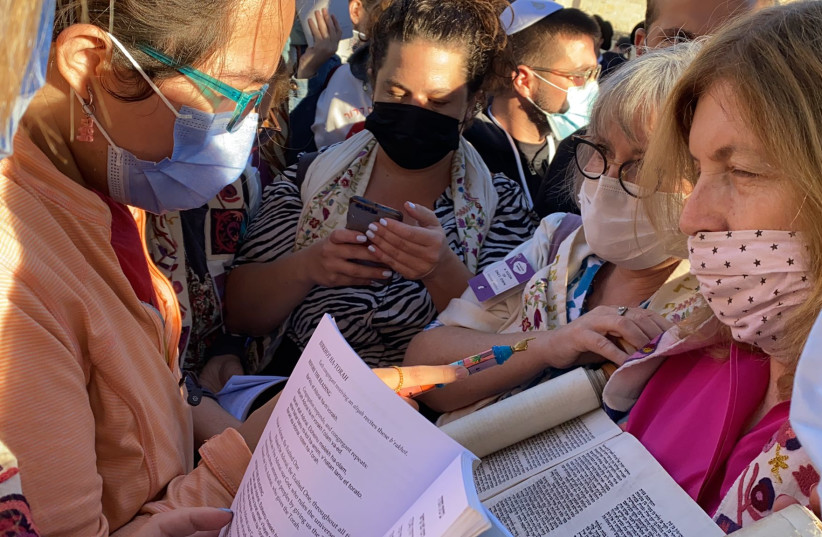As I’m not religious, does my voice count?
Should I restrict my opinions to non-religious matters only? Should I keep any opinions or thoughts that I have on the subject to myself?
Generally speaking, I don’t tend to wade into matters of a religious nature as, quite frankly, they don’t interest me and I don’t feel that I have much to add. I was brought up in a traditional Jewish household where shiurim and religious learning, per se, were completely absent. I had no formal Jewish education. The most I got in that department were a few hours of cheder each week in the lead-up to my bat mitzvah. I dabbled a bit in my mid-20s when I hooked up with a fellow who was “on a journey,” but gave it all up along with him when I realized that the relationship wasn’t going anywhere.
That said, I’m not a total ignoramus when it comes to religious matters; I’m an educated woman who’s managed to pick up a fair amount of knowledge on the subject along the way.
I’m also a proud Jew with a deep connection to my religion, heritage and traditions. I don’t feel any less Jewish than my rebbetzin friends, all of whom are respectful and accepting of me and my lifestyle choices. We even have chats about religion now and again. Nothing too heavy or involved, just two Jewish women chewing things over, each enjoying the other’s perspective.
Sadly, there are those who believe that in order to be able to opine on matters of religion, one must be a “religious” Jew. By religious, I would venture to suggest that what they in fact mean is observant. The two are not, in fact, the same, as one of my wise rebbetzin friends asserted recently. Anyone can be observant, she said, but a truly religious person is kind, thoughtful, inclusive and caring.

This got me thinking in light of an unfortunate incident that happened the other day when I was made to feel stupid and worthless, having commented on something loosely relating to a religious matter in a group chat. My response was perfectly reasonable and yet it soon became apparent that not only was my comment not welcome, but that as a non-religious woman, I didn’t have the right to opine on such matters in the first place.
The message that rang out loud and clear was that I ought to have scrolled on; I wasn’t welcome at that particular party. I tried to hold my ground, but it soon became apparent that whatever I said simply fell on deaf ears. Having decided not to waste any more time on the subject, I ducked out of the discussion and left the group.
This wasn’t the first occasion on which I’ve encountered such haughtiness, although it is the first time it’s been spelled out to me in such an insensitive, brash manner, clearly designed to embarrass and belittle. Usually, it’s more subtle, leaving me with the nagging impression that those with whom I am engaging feel that their opinions are more valid. They see themselves as being on a higher plane, somehow.
Had this incident occurred some 30 years ago, when I was less confident and mature, I’d have felt silly and stupid. I might have even felt the need to apologize for blundering into matters that don’t concern someone like me; irreligious, ignorant and unworthy – as far as they were concerned.
Happily, these days I don’t seek the acceptance and approval of others for the way I choose to live my life, and so I simply walked away.
The particular matter that was being discussed is irrelevant, as far as I am concerned. What matters is the way in which I, a non-religious woman, was made to feel by a group of self-professed religious people when I blundered into their territory.
Their actions only served to reinforce my rebbetzin friend’s assertion that “anyone can be observant, but a truly religious person is kind, thoughtful, inclusive and caring.”
Those whose comments were heeded on the group were clearly observant, but were they all religious? I’d venture to suggest that those among them who were truly religious would not have allowed the appalling treatment of a non-religious woman, or anyone for that matter, to go unchallenged.
The writer is a former lawyer from Manchester, England. She now lives in Netanya, where she spends most of her time writing and enjoying her new life in Israel.
